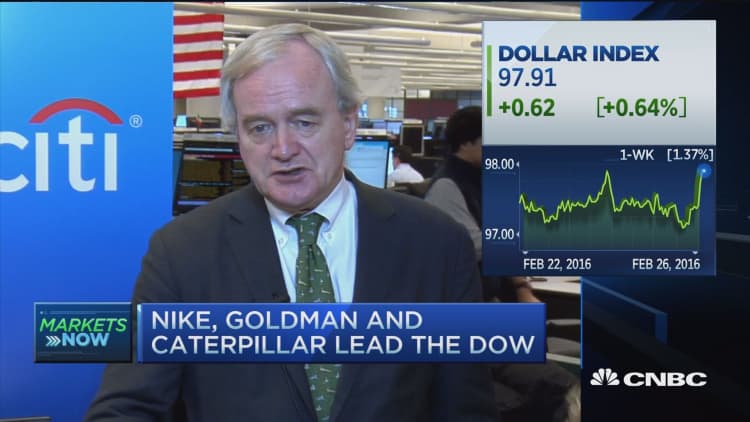
St. Louis Federal Reserve President James Bullard's view that a so called Brexit doesn't matter much to the U.S. is "extremely superficial," Citigroup's chief economist, Willem Buiter, said Friday.
Bullard told CNBC's "Squawk Box" on Thursday that he did not think Britain's exit from the European Union represents a "risk event" to the U.S. economy.
U.K. Prime Minister David Cameron has scheduled a referendum on EU membership for June 23.
"It doesn't really matter for the U.S. whether the U.K. is in or out," Bullard said.
"If the U.K. votes yes then nothing has changed. If the U.K. votes no, now you've got three years of negotiation to figure out how the hell to get out of this, or possibly some other kind of free trade agreement that isn't exactly the same as being in the EU," he explained.
But Buiter said Friday that he didn't agree with that assessment.
"That is extremely superficial. Clearly as a first step, the event itself, it would be an economic little shop of horrors for the U.K. It would have a decade of uncertainty and turmoil and slow growth following it," he told CNBC's "Squawk on the Street."
It would also create a "major risk" of a wider breakup of the 28-nation bloc, Buiter said. When it comes to tackling geopolitical issues, an EU minus the U.K. would be a "three-legged horse," he added.
But Buiter said the U.K.'s effectiveness would also be significantly diminished.
"Any usefulness of the U.K. as an ally of the U.S. in dealing with important economic and political issues in the Middle East or wherever would be out of the window. So to argue that this is not going to affect the U.S., certainly in the slightly longer horizon, is I think completely wrong."
The St. Louis Fed did not immediately respond to a request for comment.



